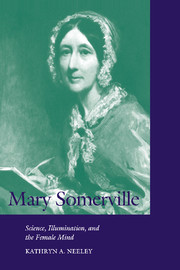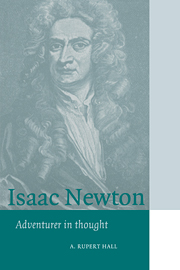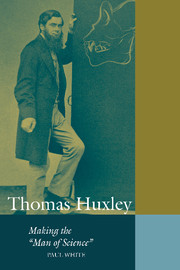3 results in Cambridge Science Biographies

Mary Somerville
- Science, Illumination, and the Female Mind
-
- Published online:
- 30 March 2010
- Print publication:
- 22 October 2001

Isaac Newton
- Adventurer in Thought
-
- Published online:
- 12 January 2010
- Print publication:
- 11 April 1996

Thomas Huxley
- Making the 'Man of Science'
-
- Published online:
- 25 June 2009
- Print publication:
- 28 November 2002

